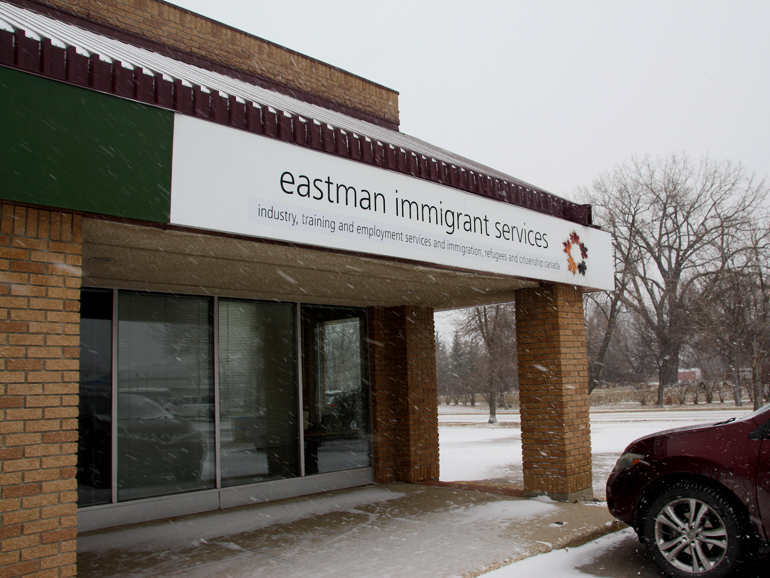After grinning and bearing through inconsistencies and seemingly unreasonable delays for around four years, Eastman Immigrant Services has decided to speak publicly about their frustrations with Manitoba Health.

If the federal government continues to make immigration and diversity a priority, as they have been, she believes the provincial government needs to make it easy to get the documentation that any Canadian citizen, immigrant or not, has a right to. That, however, has not been the experience of Reimer and her team. On a daily basis, she says settlement facilitators work with newcomers to southeastern Manitoba who are near tears because of the relentless cycles they are being run through.
“Manitoba Health is consistently giving us a bit of a runaround,” she explains. “They are re-requesting documents that have already been faxed in, asking for more information, or asking for documents that were not initially required.”
If it is okay for some levels of bureaucracy to work slowly, Reimer feels the health department is not one of them. She stresses that the health card is an essential part of integrating into Canadian society.
Typically, in order to gain employment, enroll in the education system, or acquire a driver’s license in Manitoba, an individual needs to prove they are residents of the province. For most immigrants, the health card would be that proof of residency, but for one small catch.
“Manitoba Health does not want to issue a health card without its own proof of residency," says Reimer, "and this can go on for some time which makes the first few months for our clients, very difficult and stressful.”
People who are born and raised in Canada have a myriad of ways they can verify their residency, whether it is their proof of land ownership, their rental agreement papers, or their birth certificate. Somebody who has just moved to the country simply does not have that kind of security. And, because the health card is so intrinsically tied to employment and education, not receiving it in a timely manner can effectively put an immigrant’s new life on hold before it even begins.

“Sometimes just the basics of getting health coverage is almost as grueling as the immigration process that they’ve just been through,” she stresses. “And this is something that has been promised to them; something that, by law, they are eligible for.”
After silently mulling over this problem for several years, Friesen says COVID-19 prompted her to bring it out into the open. As Friesen understands it, the virus has caused a sudden influx of work for Manitoba Health which has brought the health card application processing time to an even slower crawl than usual.
“That creates anxiety because we are in the middle of a pandemic and people want to know that, should something happen to them, they can go to the hospital.”
Friesen says her grievances with Manitoba Health do not end there either. She is also against the way they seem to apply certain Canadian values to other cultures. On that, her Brazillian colleague, Marcel Marinho, offers his perspective.
“Apparently, the Manitoba Health database is not prepared to work with certain nationalities of names,” he states.

To overcome this gap, health officials simply duplicate the first name, repeating it as the surname.“So Manitoba Health will actually change the name of our client.” Marinho says most Canadians might not have a problem with that, but in cultures where names have deep spiritual or religious meaning, the forced change can be startling or even offensive.
From there, it is that new duplicate name that is entered on all pieces of the immigrant’s Canadian identification as well as the birth certificates of any of their offspring. If an individual wants to revert back to their original single name like anyone else, they must pay for a legal name change.
“For Manitoba to just add a name and then request that the client go through the cost and hassle of getting it removed is just ludicrous,” exclaims Friesen.
Reimer acknowledges that it would be more powerful to get the immigrants themselves to share their struggle rather than having their stories relayed by the settlement facilitators but says that may do more harm than good.
“We would love for them to speak up and maybe it would make a difference, but they fear it,” she remarks. “They fear that they might never get their citizenship, they fear that they might not get permanent residency, and they fear they might never get that health card. So we want to protect them.”
Like Friesen and Marinho, Reimer too is tired of the way Manitoba Health is treating the citizens they are legally supposed to be helping.

















